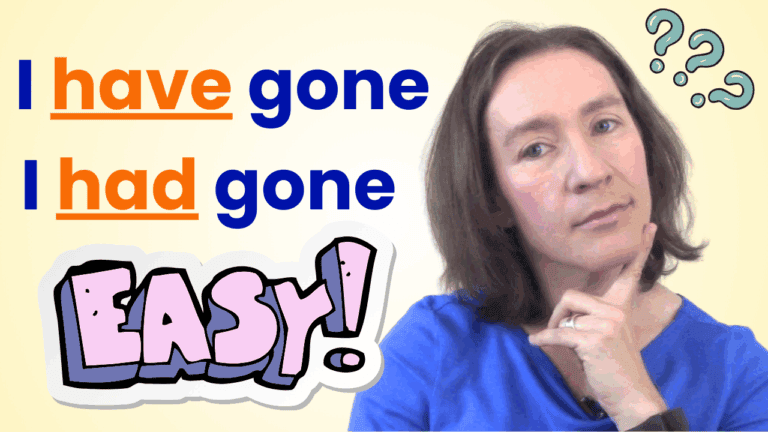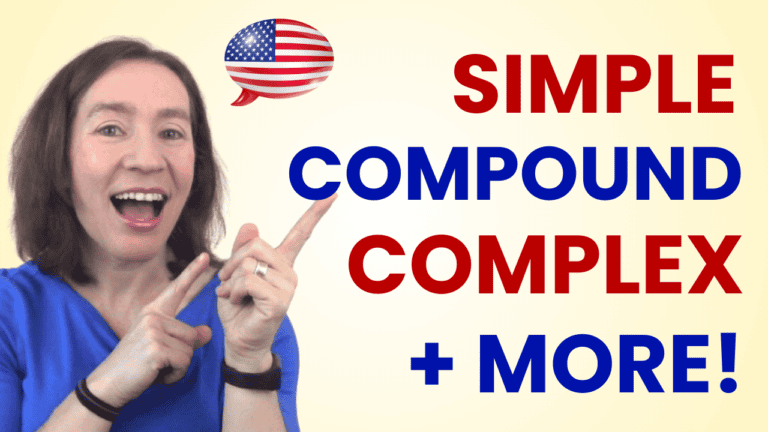 This is a guest post by Wendy Klatt. Wendy has been teaching English to non-native speakers for the past 24 years. She holds a master’s degree in Teaching with a concentration in ESL/Bilingual Education. She is passionate about giving her students the skills they need in order to feel confident and become successful in English.
This is a guest post by Wendy Klatt. Wendy has been teaching English to non-native speakers for the past 24 years. She holds a master’s degree in Teaching with a concentration in ESL/Bilingual Education. She is passionate about giving her students the skills they need in order to feel confident and become successful in English.Students often ask how to improve their paragraphs. Writing great paragraphs is easy if you focus on these three essential pieces: a topic sentence, reasons with specific examples, and a concluding sentence.
Topic sentence for a paragraph
The first essential piece you need for a great paragraph is a strong topic sentence. It is the most important sentence in your paragraph.
This sentence tells your reader what topic you will be talking about and why you are talking about that topic. This gives the paragraph purpose and focus, and it makes your paper much easier to read. Also, it is typically the first sentence of your paragraph.
Your topic sentence needs two parts: the topic and the controlling idea. The topic is what topic – or subject – you are writing about, and the controlling idea is why you are writing about it.
Topic Sentence Example: Training for a marathon involves a lot of discipline.
In this example, training for a marathon is the topic, and a lot of discipline is the controlling idea. The reader knows you will talk about training for a marathon, and that you will focus only on how it takes a lot of discipline. You will not talk about different training plans or different training locations or anything else unrelated to the controlling idea. You will only write about being disciplined when training for a marathon.
Reasons and specific examples in a paragraph
The next piece you need for your paragraph is specific examples.
You need to show the reader – with words – exactly what your topic and controlling idea looks like. You want the reader to clearly imagine what you are describing. In a paragraph, you should include at least three reasons to support your topic sentences. Each of these reasons needs to be supported with specific examples.
Let’s look at adding a reason with specific details to our topic sentence example:
Training for a marathon involves a lot of discipline. First, you need to commit large amounts of time to building up your mileage. For example, many training plans require runners to log at least 4 runs per week. These runs start out with shorter distances, like three or four miles, but progress into much longer runs with some of the last weeks logging around 34-40 miles per week. No matter your pace, these runs require many hours on the road plus time before and after for proper stretching.
Do you notice how many sentences I have for my example? In order to support your reason (large amounts of time), you need to include very specific information about what is included in that time commitment.
Now, what if I wrote something like this, which lacks specific details and examples?
Training for a marathon involves a lot of discipline. First, you need to commit large amounts of time to building up your mileage. For example, many training plans require runners to run many miles per week.
What a huge difference the details make! The first paragraph uses tons of specific details in the example to paint the picture of how much time it will take to train. You read about how many miles each week, what kind of distances, and the hours involved.
The second one just tells the reader that the person training has to run many miles per week. We do not know how many or how long it takes or how many days a week. Because we learn very little from that sentence, it is challenging to form a mental picture of how much time commitment it really takes to train for a marathon. Therefore, by not including specific details in your examples, your paper becomes weak and not as interesting to read.
Concluding sentence for a paragraph
The final piece of your paragraph is the concluding sentence. This is the last sentence of your paragraph.
We typically begin this sentence with a concluding transition such as: In sum, In brief, or Overall.
Then we restate the topic sentence to remind the reader what our focus was. It’s important to keep the same meaning but just change the words to keep the writing interesting. We also add a little bit more to the sentence to keep the reader thinking about our paper. This can be something like a prediction, a warning, or a suggestion.
Let’s write a concluding sentence based upon the topic sentence from above.
Topic Sentence: Training for a marathon involves a lot of discipline.
Concluding Sentence: Overall, it takes a tremendous amount of self-control to prepare yourself to run 26.2 miles, but the feeling you get when you cross the finish line makes it worth all of that effort.
Here is why this concluding sentence is strong: First, it starts with a transition – Overall. Then it restates – or says in other words – the topic and the controlling idea. It also switches the order of the topic and controlling idea to add variety to the writing!
So, instead of writing a lot of discipline again, it says a tremendous amount of self-control. These two phrases mean the same thing but just use different language.
And then for the topic, in place of training for a marathon, we use prepare yourself to run 26.2 miles. Again, it’s the same meaning just different words. Using synonyms and similar meaning phrases helps to strengthen your concluding sentence.
Lastly, we add our opinion to keep the reader thinking about our paragraph. We say that the pain of training is worth it because it feels so wonderful to cross the finish line. This added opinion helps the reader to imagine that the hard work involved pays off with that wonderful feeling of accomplishment.
And that is it! Now you know the three pieces you need to write a strong, successful paragraph. Remember, they are:
- topic sentence– topic + controlling idea
- reasons with specific examples – details, details, details
- concluding sentence– transition, restated topic sentence, opinion or prediction or warning (depending on the type of paragraph)










